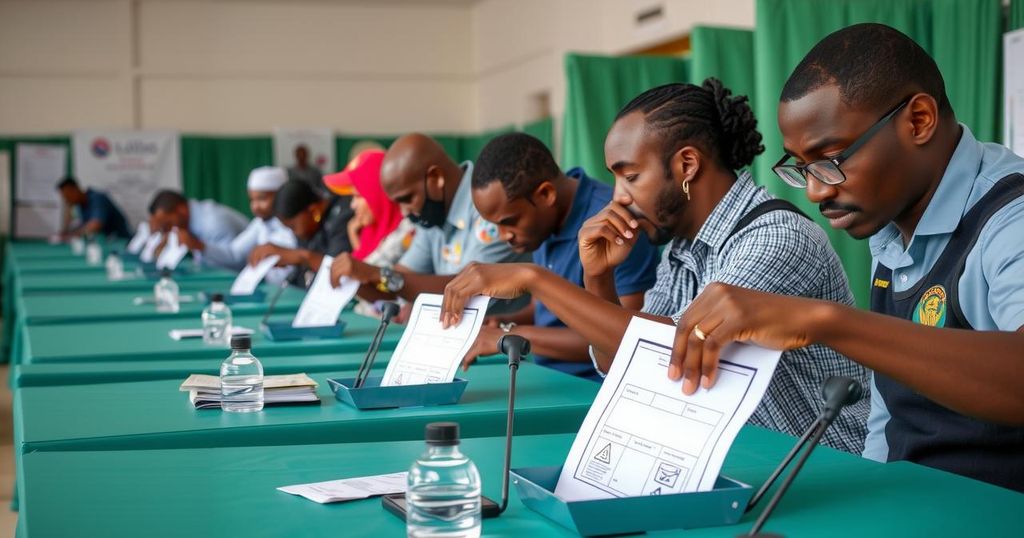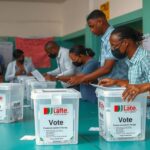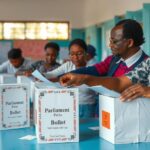Elections
Politics
ABDALLAH SAMBI, AFRICA, AUSTRALIAN ASSOCIATED PRESS, AZALI ASSOUMANI, COMOROS, ELECTION FRAUD, GOVERNANCE, GOVERNMENT, HAMIDOU KARIHILA, HOPE OF THE COMOROS, INDIAN OCEAN, INDIAN OCEAN ARCHIPELAGO, JUWA, NO, NOUR EL - FATH, OPPOSITION, POLITICS, PRESIDENTIAL ELECTION, REUTERS, SUPREME COURT
Omar El-Sharif
Voters in Comoros Prepare for Parliamentary Elections Amid Controversy
Voters in the Comoros are casting their ballots for a 33-seat parliament amid allegations of electoral misconduct from the opposition against President Azali Assoumani. Approximately 338,000 citizens are registered to vote, as nearly 100 candidates compete following tensions regarding Assoumani’s rule. Results are expected by Friday, with some opposition leaders calling for a boycott, while others advocate for participation to expose institutional flaws.
Voters in Comoros are participating in elections for the archipelago’s 33-seat parliament, following President Azali Assoumani’s controversial re-election last year, which was alleged by the opposition to be fraught with irregularities, claims that the ruling party has firmly denied. Polling stations opened early on Sunday, with approximately 338,000 registered voters. The last parliamentary elections occurred in January 2020, and nearly 100 candidates have been approved by the Supreme Court to contest this election. Opposition figures have accused President Assoumani of authoritarian practices and suggest he is attempting to groom his eldest son, Nour El-Fath, as a successor as his term is set to end in 2029. Since coming to power via a coup in 1999, Assoumani has been re-elected three times, with his son receiving considerable authority in overseeing government operations as of 2024. While certain opposition parties, including Juwa led by former President Ahmed Abdallah Sambi, have urged a boycott of these elections, others have opted to participate. Hamidou Karihila, a candidate from the opposition Hope of the Comoros party, expressed, “The Azali regime is weakened … by participating in these elections we are contributing to further exposing the flaws in its system and accelerating its inevitable fall.” The results of the elections are anticipated by Friday.
Comoros is an Indian Ocean archipelago that has experienced political instability and allegations of electoral misconduct over the years. President Azali Assoumani has governed since 1999, initially seizing power through a coup. Following several elections, his leadership style has been characterized by claims of authoritarianism, with increasing concerns about the political future of the nation, particularly regarding the consolidation of power within his family. The current parliamentary election process serves as a litmus test for the strength of the opposition and the legitimacy of the ruling party amidst allegations of electoral fraud and demands for boycotts from certain factions.
The parliamentary elections in Comoros are a critical moment for the nation’s democratic processes, set against a backdrop of political controversy surrounding President Azali Assoumani. While the ruling party denies accusations of election irregularities, the opposition remains vocal about their distrust and calls for reform. The level of electoral participation will serve as an indicator of public sentiment towards the current regime, with results expected by the end of the week, which may further influence the political landscape in the coming years.
Original Source: www.singletonargus.com.au








Post Comment